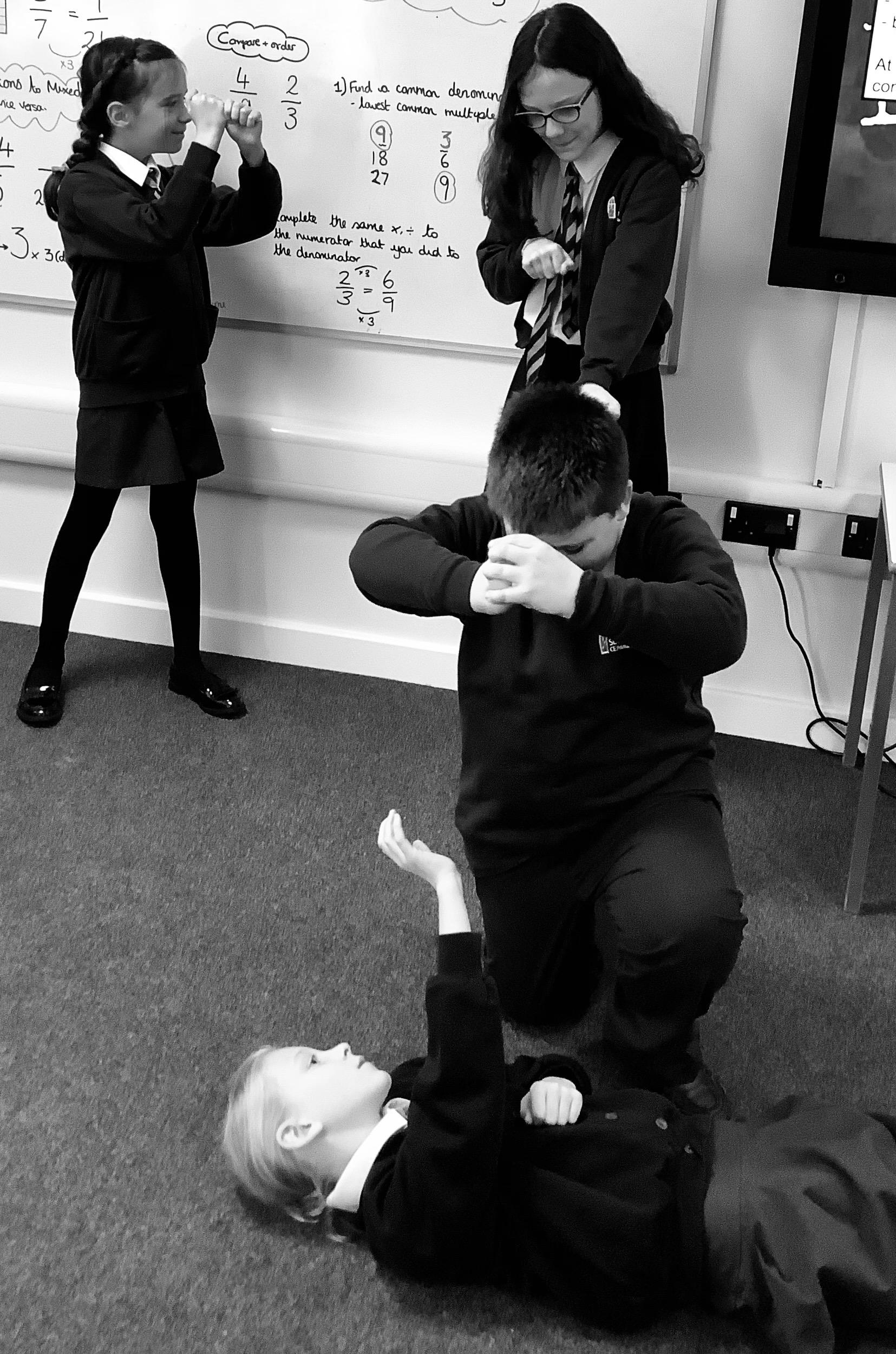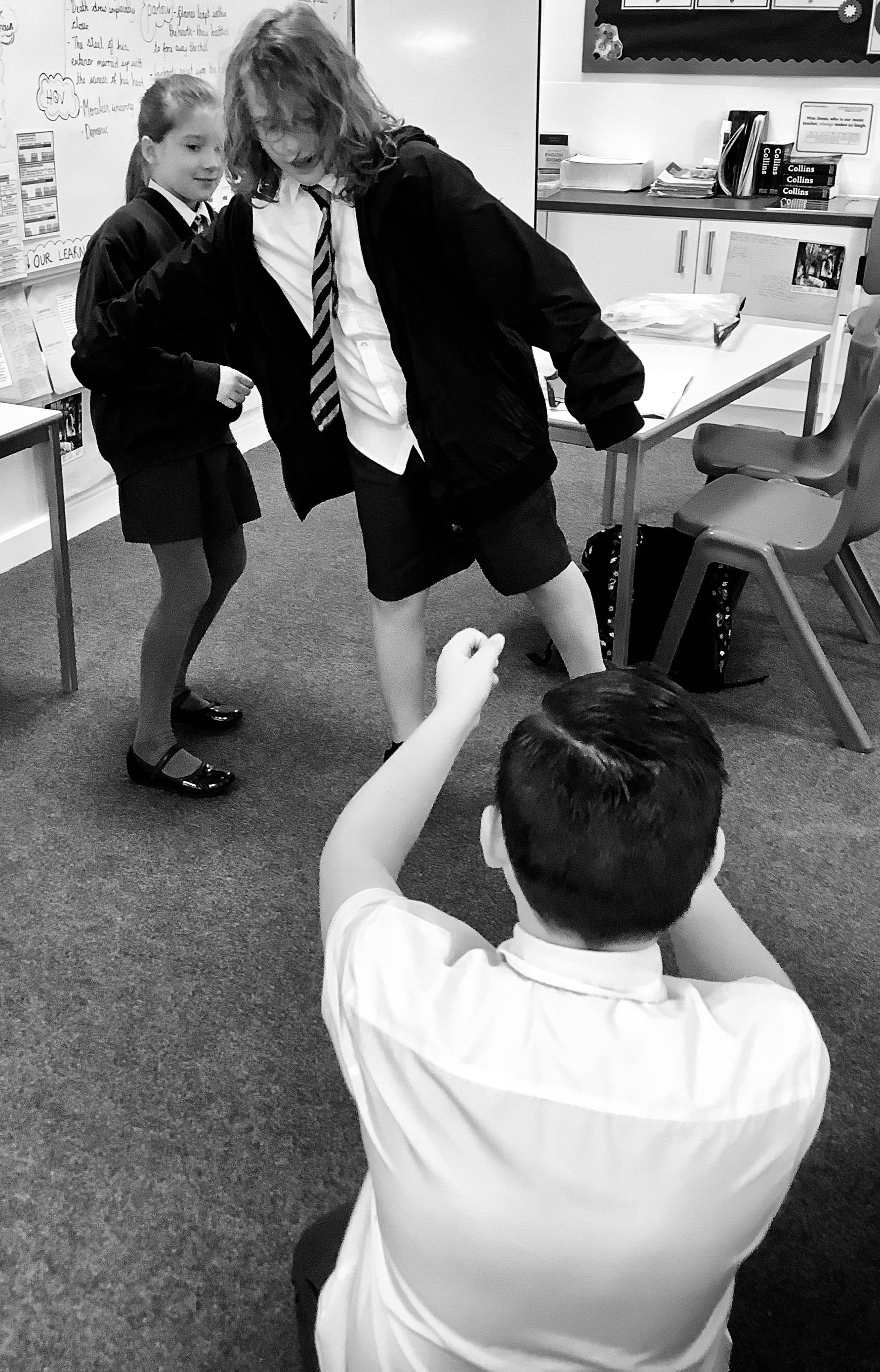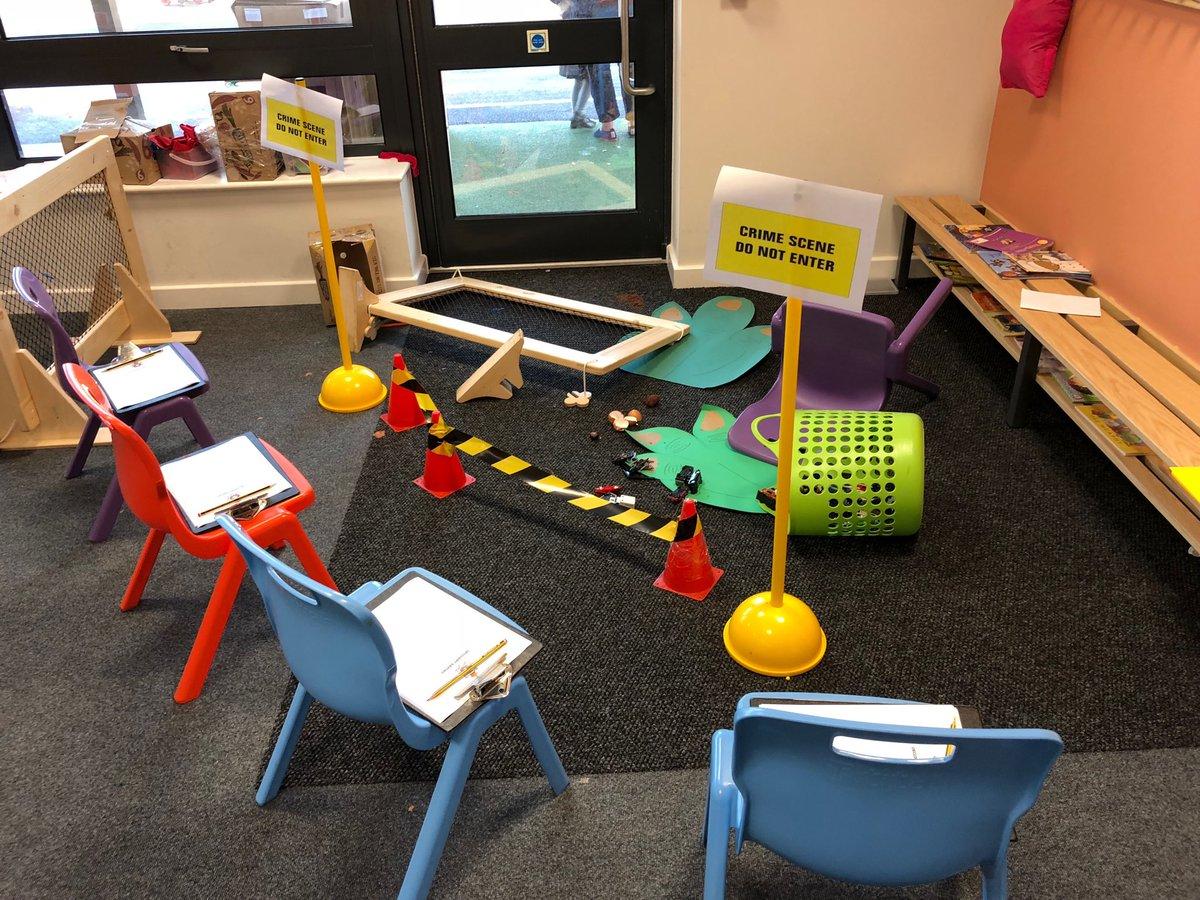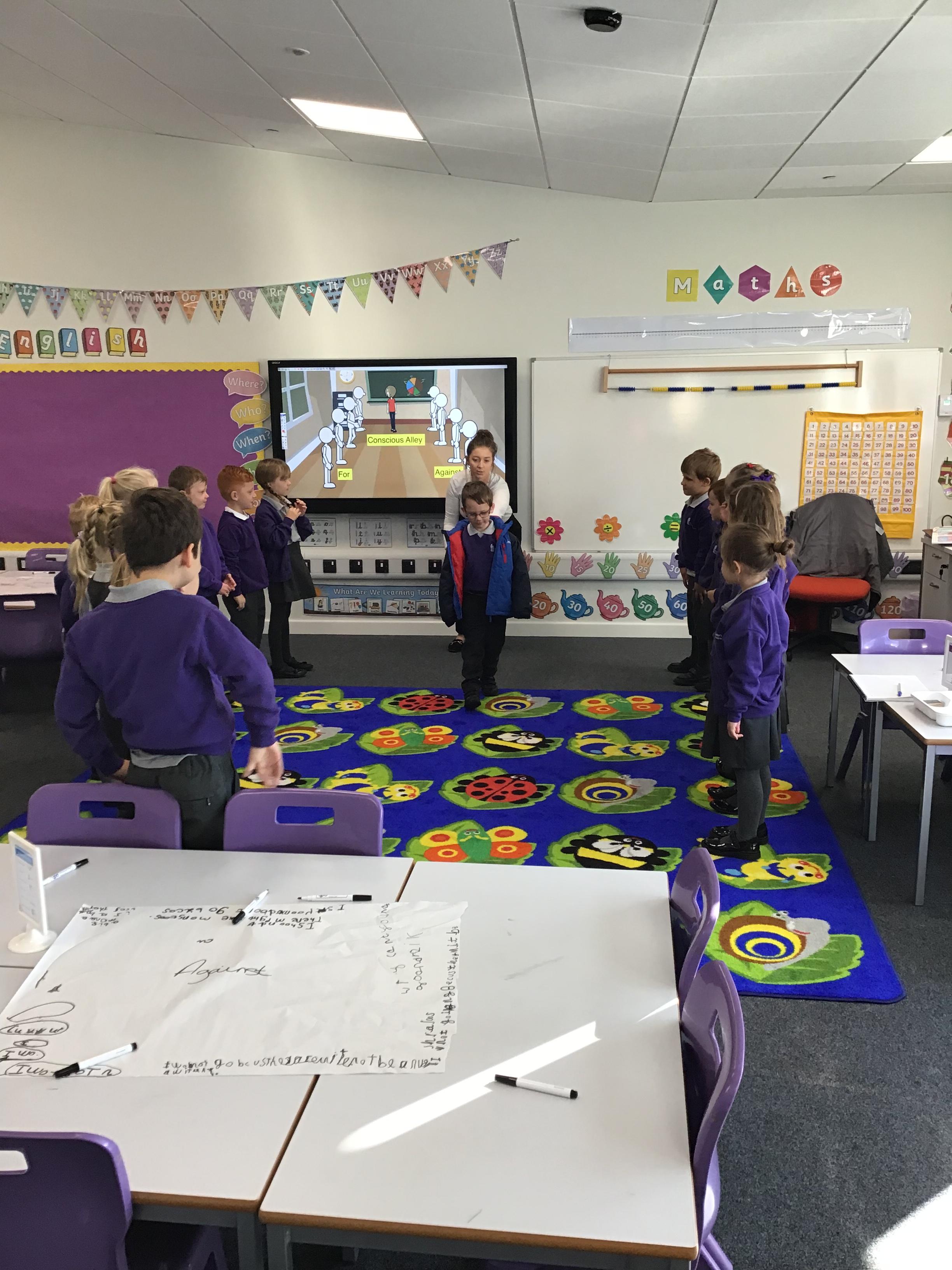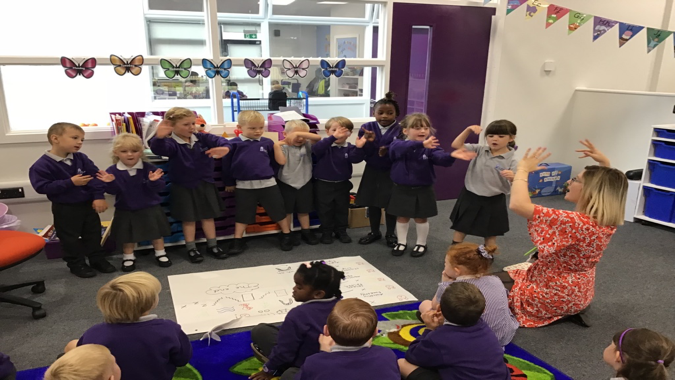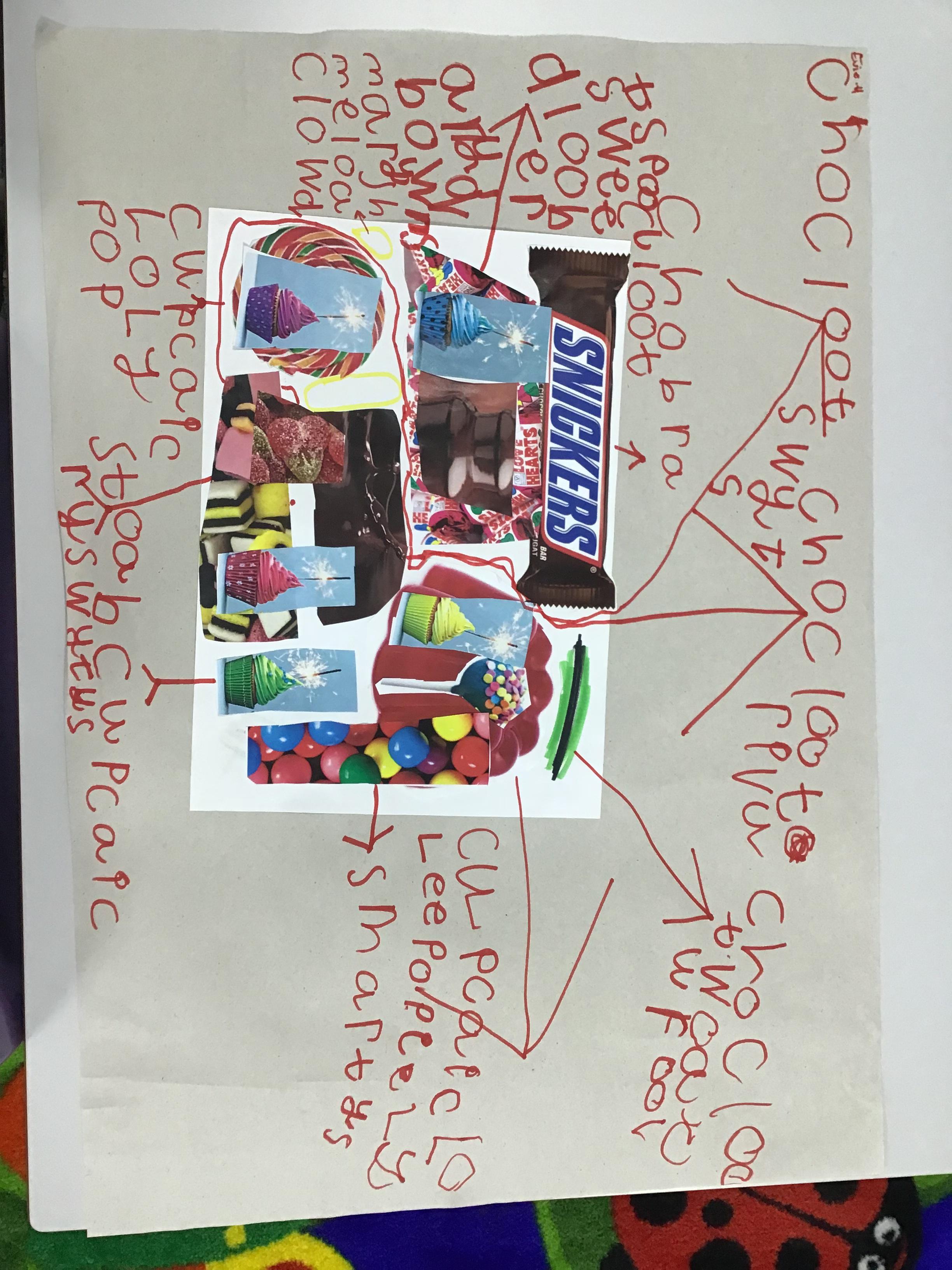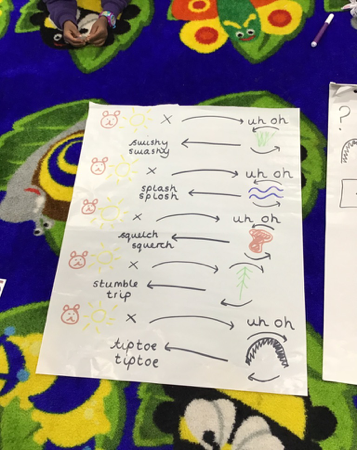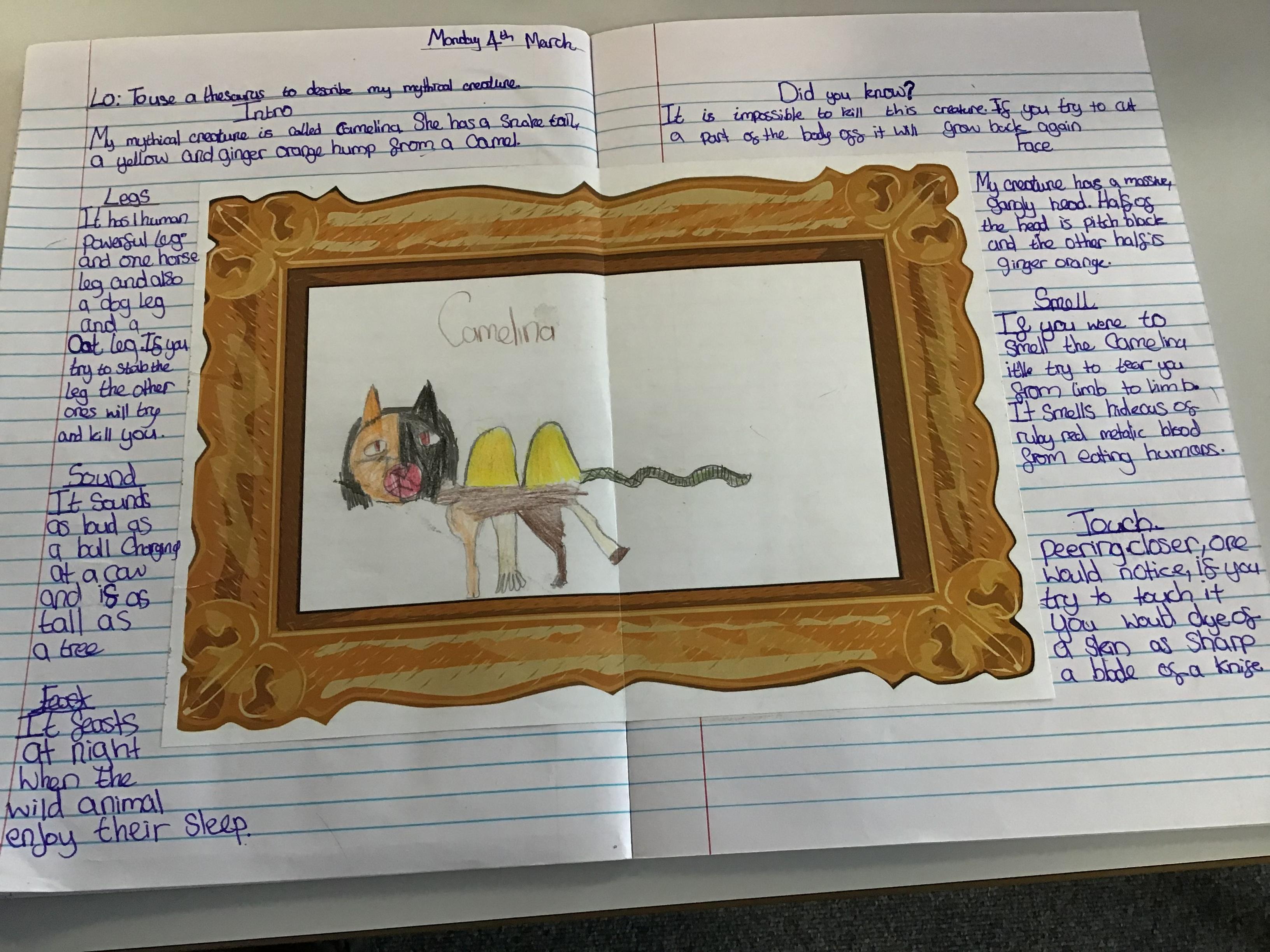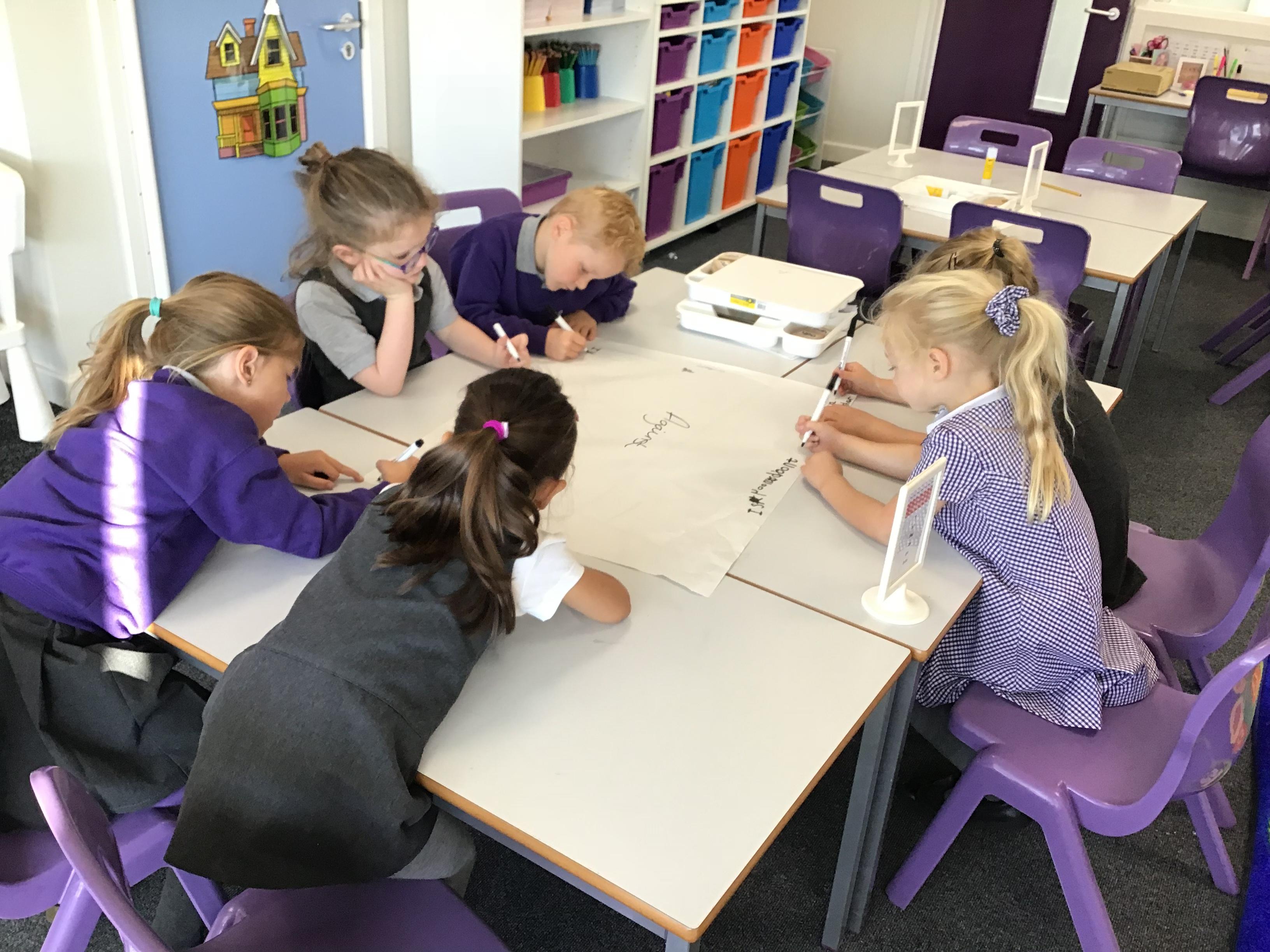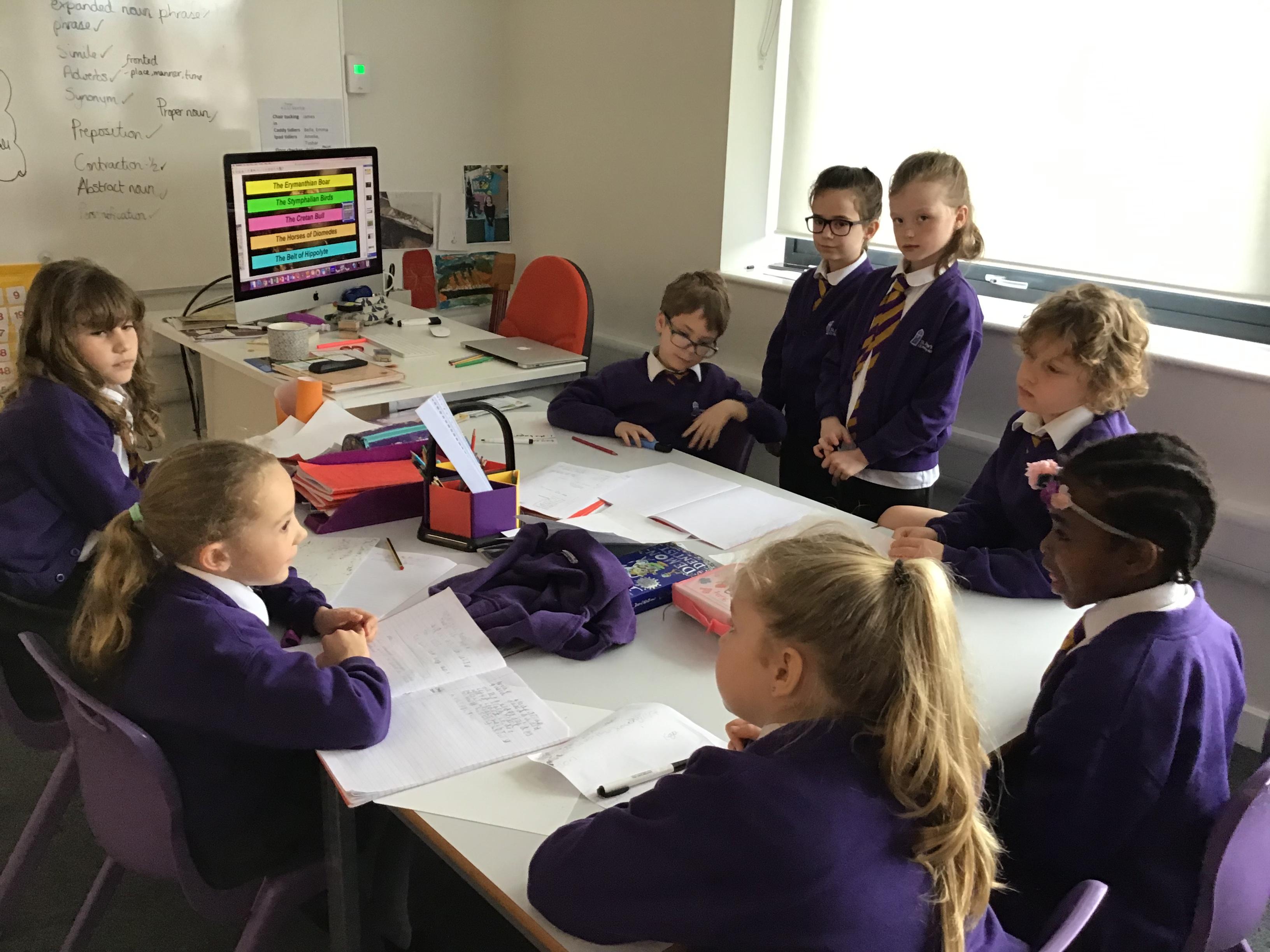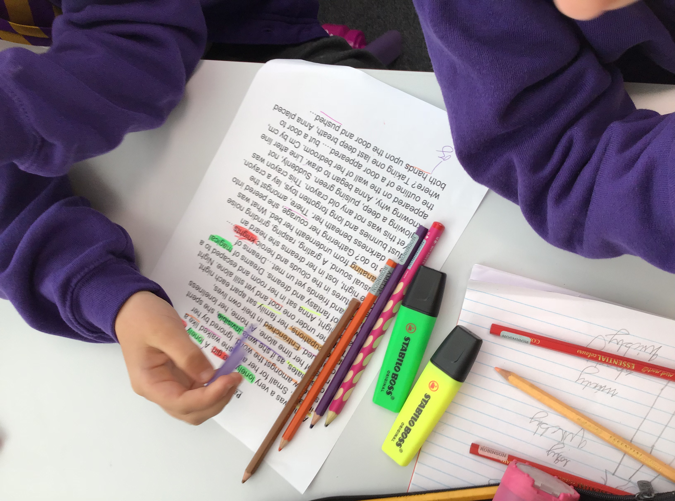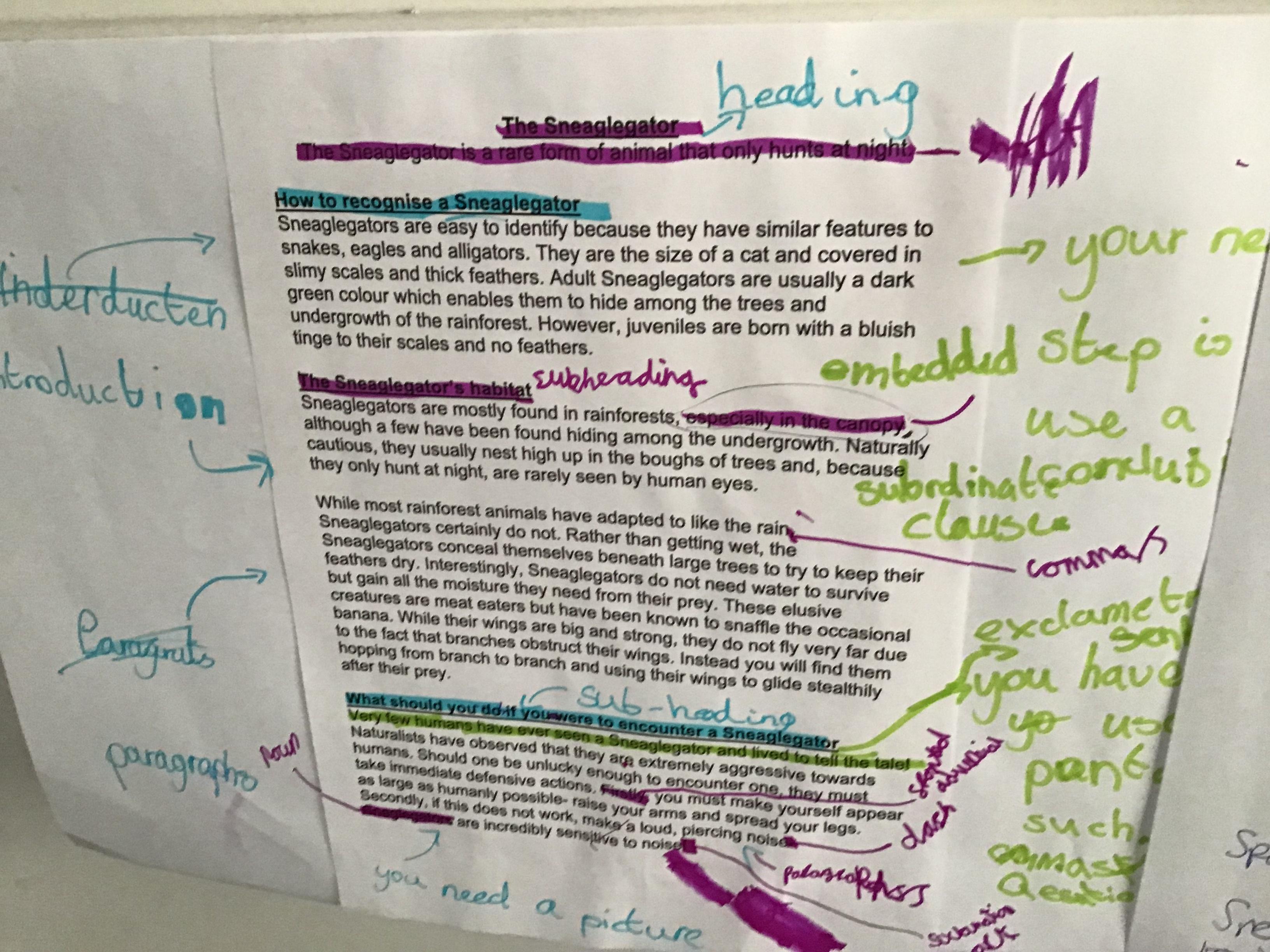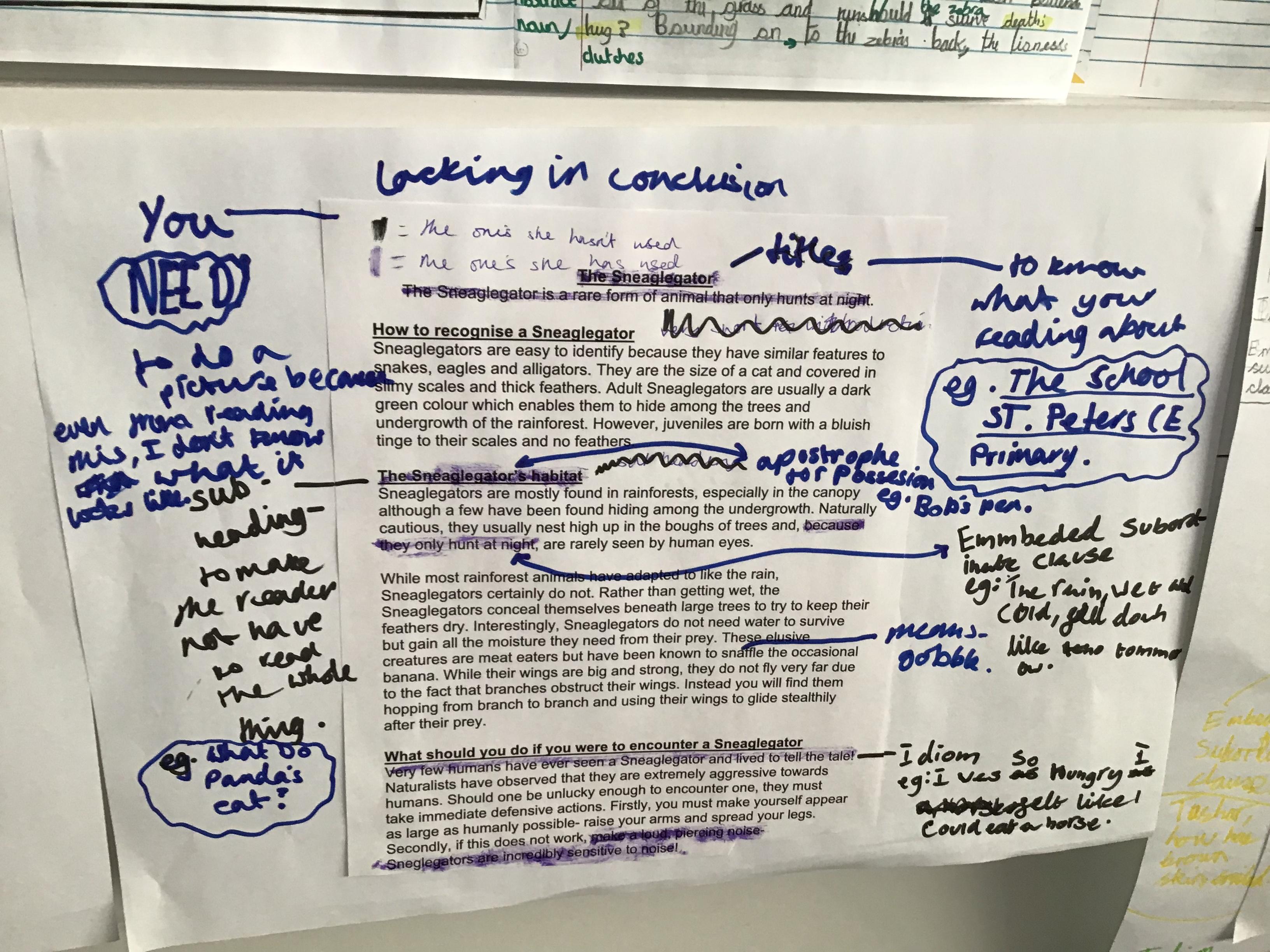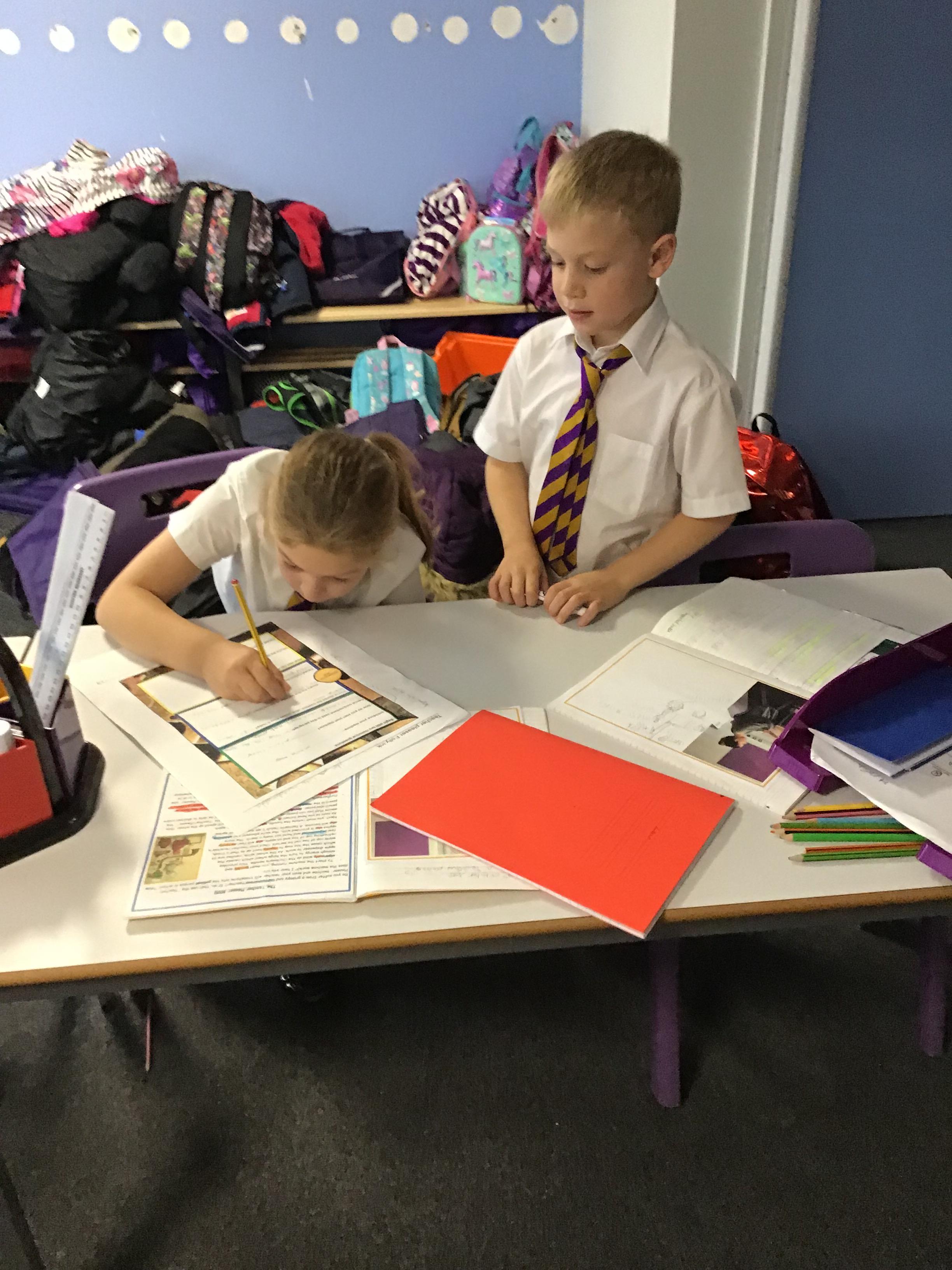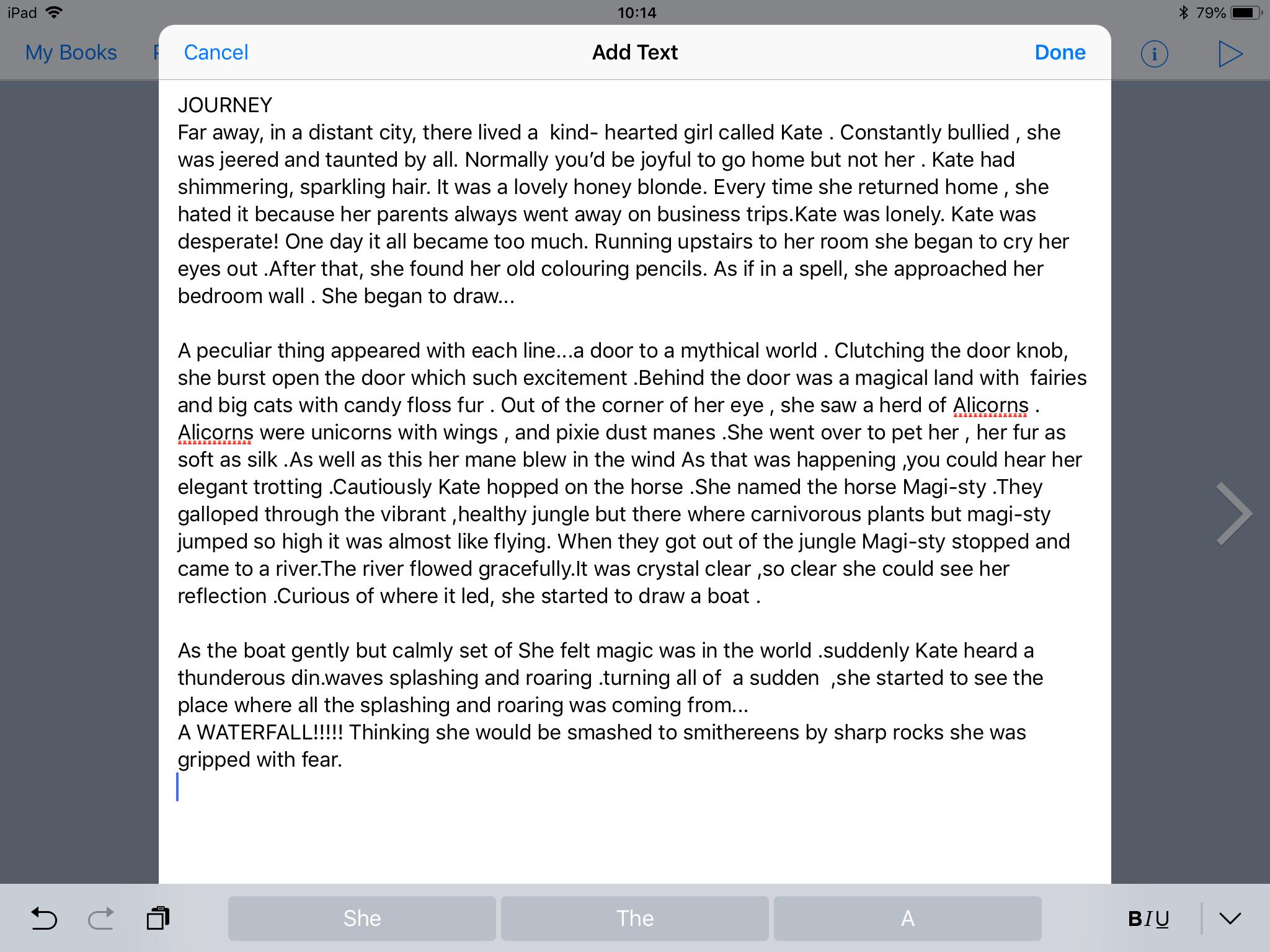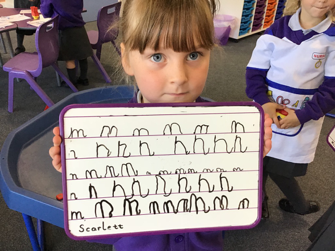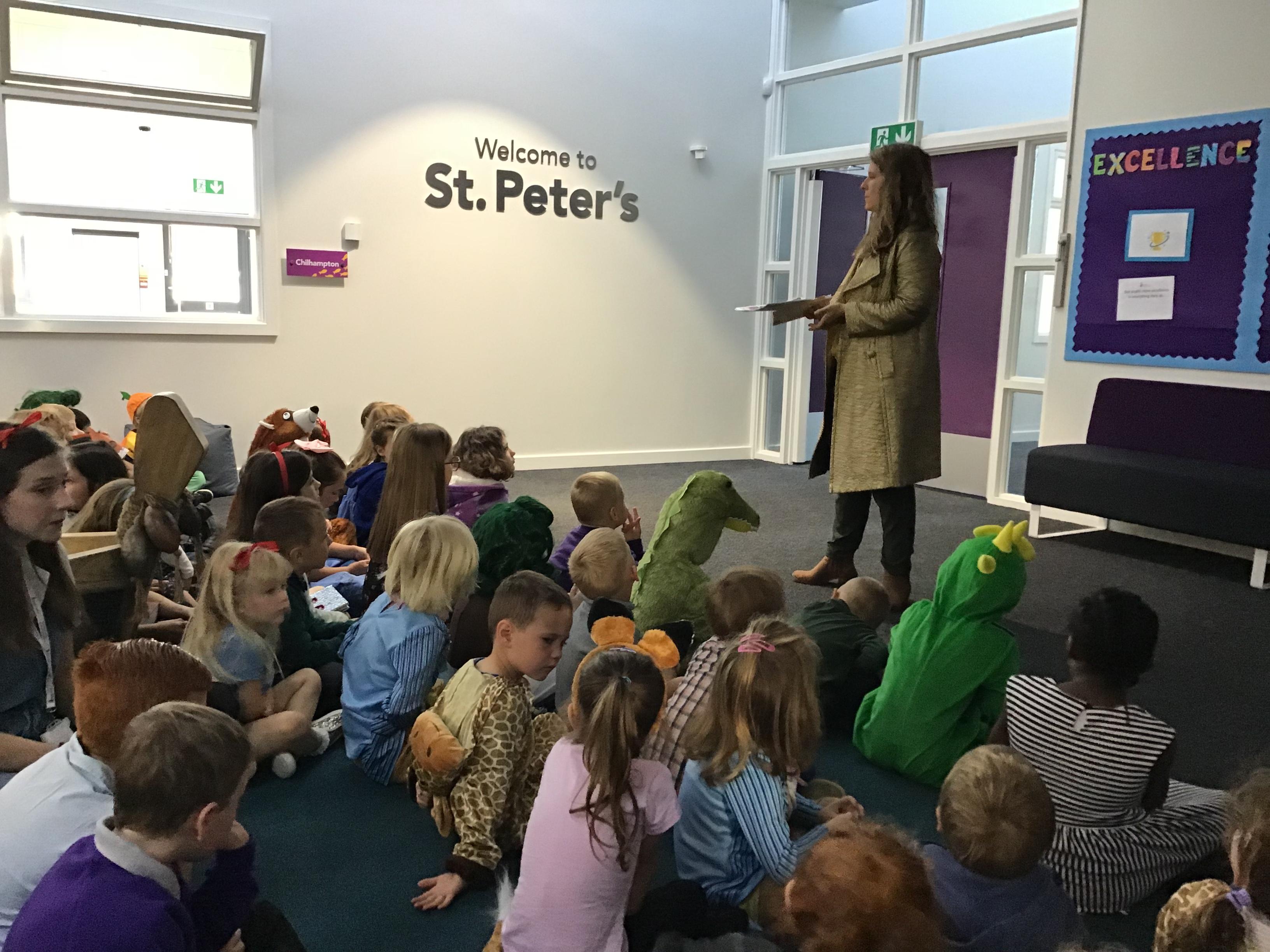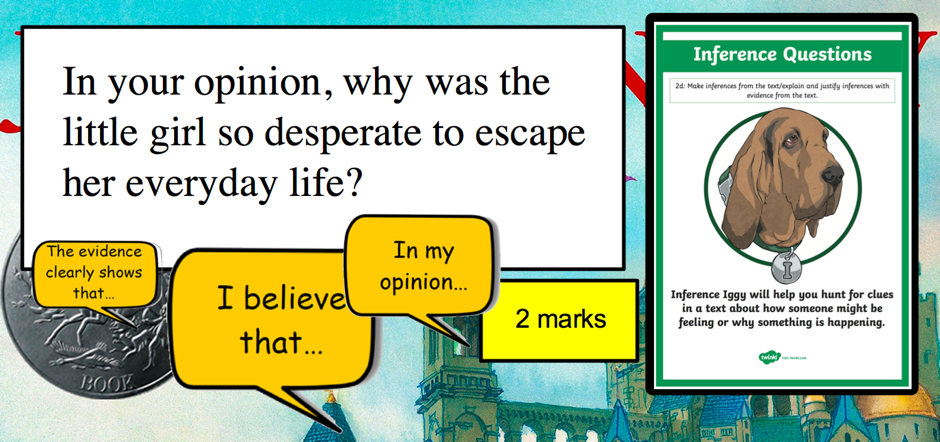English
“What an astonishing thing a book is. It's a flat object made from a tree with flexible parts on which are imprinted lots of funny dark squiggles. But one glance at it and you're inside the mind of another person, maybe somebody dead for thousands of years. Across the millennia, an author is speaking clearly and silently inside your head, directly to you. Writing is perhaps the greatest of human inventions, binding together people who never knew each other, citizens of distant epochs. Books break the shackles of time. A book is proof that humans are capable of working magic." Carl Sagan
Curriculum Intent:
At St. Peter’s CE Academy we strongly believe that English has a vital role to play in education and in society as a whole. A high-quality education in English will enable pupils to speak and write fluently so that they can communicate their ideas and emotions to others and through their reading and listening, others can communicate with them. Our English Curriculum is driven by a deep rooted passion for high quality texts which reflect a diverse and progressive world view. These texts are used as a stimulus to drama, to discussion, to debate, to explore ideas, to expand vocabulary, to improve reading comprehension and writing skills. Our writing overviews carefully plan for cultural capital. We choose texts that broaden children’s reading repertoires and we plan for progression in coverage of fairy tales and classic texts (including Shakespeare in Years 5 and 6)
Driven by high quality texts and poetry alongside opportunities for talk, writing skills develop. Through reading in particular, pupils have a chance to develop culturally, emotionally, intellectually, socially and spiritually. English, especially, plays a key role in such development and engenders our children with a global consciousness. Reading also enables pupils both to acquire knowledge and to build on what they already know. All the skills of language are essential to participating fully as a member of society therefore we place high value of the quality first teaching we deliver as part of our English curriculum.
The overarching aim for English in our school is to promote extremely high standards of language and literacy by equipping pupils with a strong command of the spoken and written word, and to develop their love of literature through widespread reading for enjoyment. We aim to ensure that all pupils:
- sharing collective wisdom is the cornerstone of their learning. Children use peer and group discussion in order to learn; they should be able to elaborate and articulate clearly their understanding and ideas.
- see themselves as authors. Children write clearly, accurately and coherently, adapting their language and style in and for a range of contexts, purposes and audiences.
- immerse themselves in language. Children develop the habit of reading widely and often, for both pleasure and information so as to acquire a varied and ambitious vocabulary, an understanding of grammar and knowledge of linguistic conventions for reading, writing and spoken language.
- have a varied and diverse literary diet. Children are exposed to a wide variety of high quality literature from all cultures so as to appreciate our rich and varied literary heritage and that of other countries.
- children read with ease, fluently and with clear understanding and expression so as to engage and excite the audience.
- are eloquent and confident speakers. Children are competent in the arts of speaking and listening, making formal presentations, demonstrating to others and participating in debate.
The school places huge importance on developing discussion skills, speaking and listening and drama as we firmly believe that children need to develop a wide and exciting vocabulary. A variety of media is used as a stimulus to learning, including e-books, drama and computers.
Impact:
High expectations and quality teaching of writing lead to passionate writers who are inspired to write. Children’s writing is high quality and exciting to read. They understand the conventions of different genres and write purposefully to entertain, to inform and to persuade. Children use collective wisdom to discuss why their writing is successful and make changes, thinking carefully about word choice, sentence structures and the impact on their reader.
The school regularly monitors the standards of English within the school, with the aim of continually raising standards. English is used effectively across the curriculum and our pupils see themselves as authors in a range of contexts outside of the English lesson.

